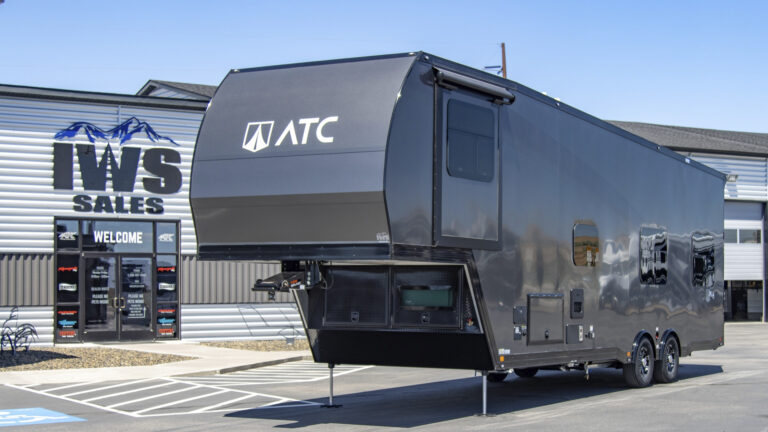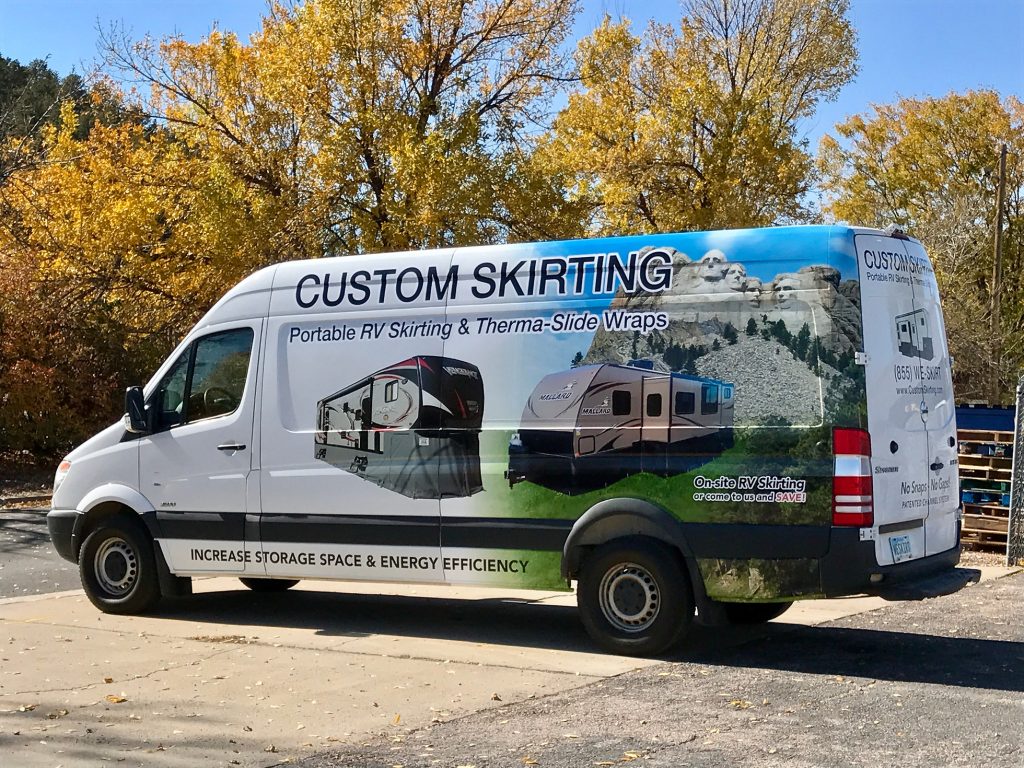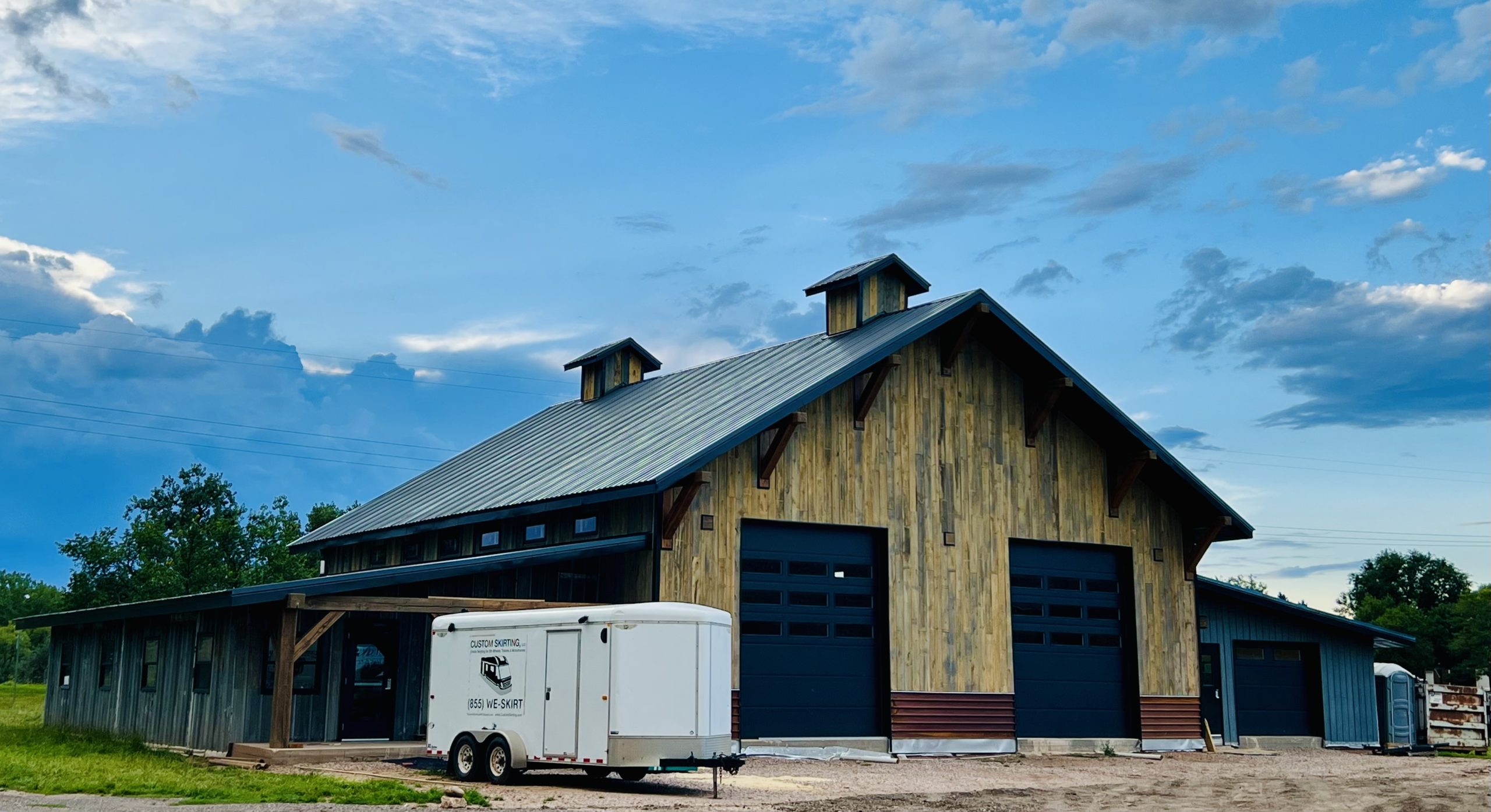Table of contents
- Understanding Fifth Wheel Height Basics
- Factors Affecting Fifth Wheel Height
- Importance of Fifth Wheel Height in Towing
- Campground and Storage Considerations
- Comparing Fifth Wheel Height to Other RV Types
- Clearance Requirements for Fifth Wheels
- Choosing the Right Fifth Wheel Height
- Your Perfect Fifth Wheel Adventure Awaits at Black Hawk Creek RV Park & Cabins!
- Related Articles
When it comes to selecting the perfect RV for your adventures, understanding the importance of fifth wheel height is crucial. It can impact various aspects of your RV experience, from towing and storage to campground accessibility. Whether you’re a seasoned RV enthusiast or a newcomer to the world of fifth wheel campers, knowing how much does a 5th wheel weigh and how fifth wheel camper weight plays into overall towing dynamics is essential. The 5th wheel weight directly influences towing safety and fuel efficiency, making it vital to consider both height and weight when choosing your ideal rig. In this guide, we’ll break down everything you need to know about fifth wheel height.
Understanding Fifth Wheel Height Basics
Fifth wheel height refers to the distance from the ground to the top of the trailer. This measurement is essential when towing your fifth wheel as it can affect your RV’s stability and clearance while on the road. The fifth wheel height typically ranges between 11’6″ and 13’5″, depending on the model and its features. Keep in mind that the legal limit for highway travel in the U.S. is 13’6″.
When measuring fifth wheel height, it’s important to consider the height of both the trailer and the tow vehicle, as these factors work together. How much does a 5th wheel weigh and its 5th wheel camper weight also play a role in determining towing capacity, as higher trailers may be heavier, requiring a more robust tow vehicle to handle the weight safely.
What Affects Fifth Wheel Height?
The height of a fifth wheel can vary based on several factors. For example, the addition of air conditioners, solar panels, and antennas to your RV can significantly increase its overall height. Additionally, the type of suspension system and tire size used can affect the height of your fifth wheel. The 5th wheel camper weight can also play a role in the overall dimensions, as heavier models may require different suspension systems or adjustments to maintain proper clearance.
Factors Affecting Fifth Wheel Height
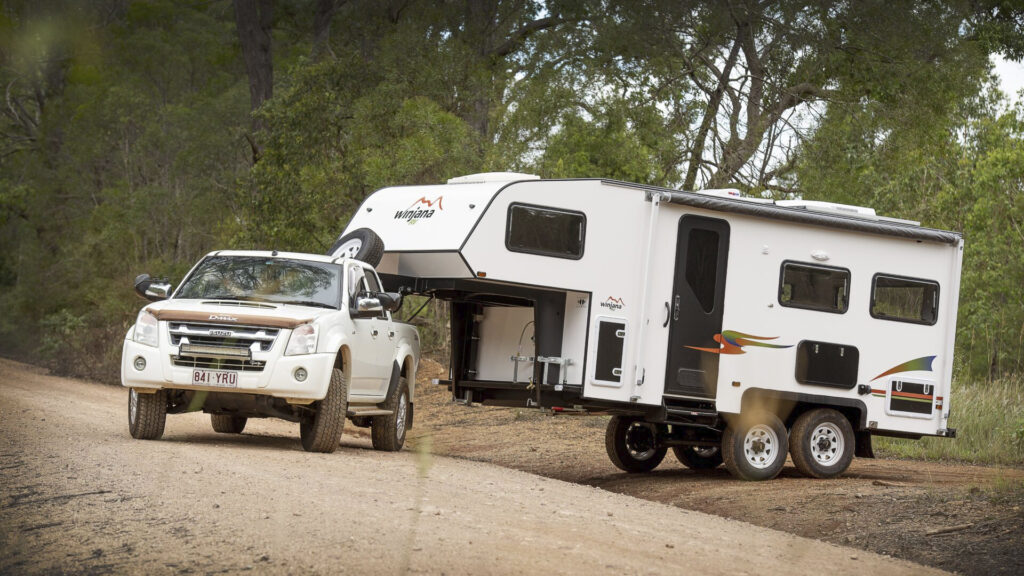
Several key factors influence the height of a fifth wheel, and understanding these factors can help you choose the right RV for your needs. Here’s a breakdown:
Model and Manufacturer Differences
Not all fifth wheels are created equal. Manufacturers design their models with varying heights, which can depend on the floor plan, intended use, and the number of features included. Taller models are often designed to provide extra headroom or increased storage space, which could be beneficial for those looking for more living space inside.
Air Conditioning and Solar Panels
Common accessories like air conditioners and solar panels add to the total fifth wheel height. Depending on the model, you might find that these add several inches to the overall height, which could make a difference when navigating under low overpasses or tree branches.
Tire Size and Suspension Systems
The height of your fifth wheel can also be affected by the type of tires and suspension systems installed. Larger tires or a lifted suspension can increase the fifth wheel height, which may impact both the towing dynamics and the ability to access certain campsites or storage options.
Weight Distribution and Loading
The way your fifth wheel is loaded can affect its height. For example, an uneven load or improper weight distribution can alter the trailer’s height, potentially causing an imbalance while towing. Be sure to distribute weight evenly across the trailer to maintain the correct height and ensure safe towing conditions.
Importance of Fifth Wheel Height in Towing
When it comes to towing, fifth wheel height plays a critical role in your overall towing dynamics. A trailer that is too high or too low can affect how your tow vehicle handles, leading to instability, poor fuel efficiency, and a less safe towing experience. Here’s how fifth wheel height impacts towing:
Tow Vehicle Compatibility
One of the most important considerations is how fifth wheel height impacts the compatibility with your tow vehicle. When the trailer is hitched, the fifth wheel height should be such that it aligns properly with the hitch on your vehicle. This alignment is essential for smooth towing and preventing any risk of damage to your vehicle or the trailer itself.
Wind Resistance and Fuel Efficiency
The height of your fifth wheel can also affect wind resistance while driving. Taller trailers experience more wind drag, which can lead to reduced fuel efficiency, particularly at highway speeds. To improve fuel economy, consider selecting a trailer that matches your towing needs without unnecessarily high wind resistance.
Towing Stability
Fifth wheel height directly impacts towing stability. If your trailer is too high, it could lead to swaying, which makes it more difficult to control, especially in windy conditions. On the other hand, a very low fifth wheel height might not allow for optimal suspension movement, creating a rougher ride. Matching the right height to your vehicle’s towing capacity is key to ensuring a smooth and safe towing experience.
Campground and Storage Considerations
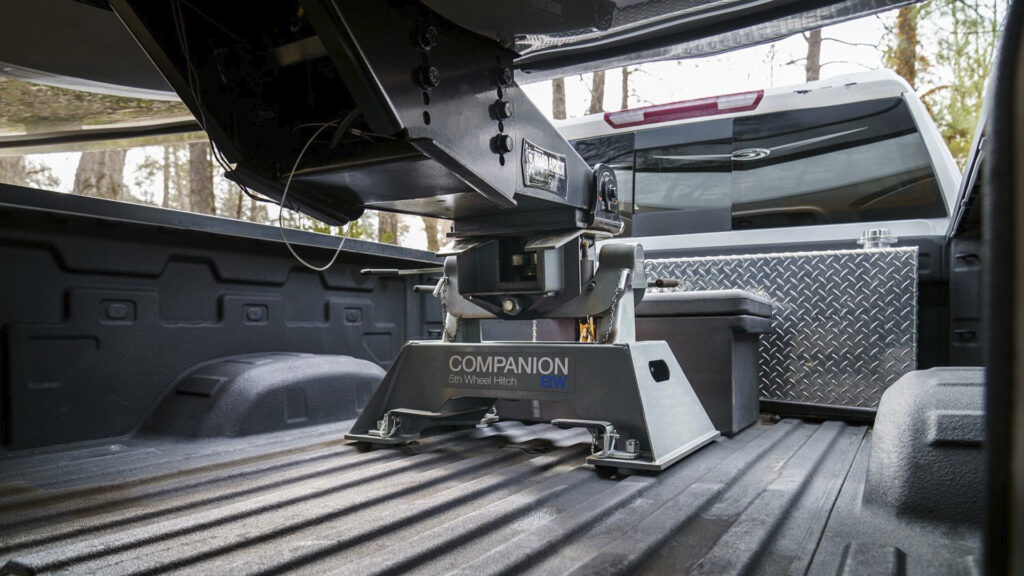
Another critical factor to keep in mind is how fifth wheel height affects your ability to camp and store your RV. Here’s what you need to know about campground and storage considerations:
Campground Restrictions
Many campgrounds, especially those in national parks, have height restrictions that may affect your ability to park your fifth wheel. Be sure to check the height limits of any campsite you plan to visit. Also, consider how much does a 5th wheel weigh, as this can impact accessibility and parking options.
Storage Limitations
Storing a tall fifth wheel can also be challenging, particularly if you plan to store it in a garage or under a shelter. Many RV storage facilities have height limits for their indoor storage spaces, and some may require you to store your trailer outdoors if it exceeds these height limits. When choosing a storage facility, be sure to measure your trailer’s total height.
Comparing Fifth Wheel Height to Other RV Types
When comparing fifth wheel height to other RV types, particularly travel trailers, fifth wheels generally tend to be taller. This height advantage allows for more interior space, including higher ceilings, larger storage compartments, and more comfortable living areas. While taller fifth wheels may offer more living space, they also tend to be less maneuverable.
Clearance Requirements for Fifth Wheels
When driving a fifth wheel, it’s essential to ensure that there is enough clearance for both overhead and ground obstacles. Here are some key clearance requirements to consider:
Overhead Clearance
Bridges, tunnels, and other structures can present clearance challenges, particularly for taller fifth wheels. The maximum legal height for most highways in the U.S. is 13’6″. However, it’s always a good idea to check the specific clearance limits of any routes you plan to take to avoid getting stuck under low-hanging obstacles.
Ground Clearance
Ground clearance is another important consideration, particularly when navigating rough roads or steep inclines. Ensure your fifth wheel has sufficient ground clearance to handle obstacles like curbs or uneven terrain. Since 5th wheel camper weight can sometimes impact ground clearance, it’s important to account for this factor when loading your RV.
Choosing the Right Fifth Wheel Height
Selecting the right fifth wheel height involves balancing several factors. Here are some key tips for choosing the right height for your needs:
Interior Space vs. Practicality
Ensure that the height of your fifth wheel matches the capabilities of your tow vehicle and aligns with your travel needs. Factor in 5th wheel weight and towing dynamics when deciding how much interior space and height you’re willing to prioritize. While taller fifth wheels provide more living space and comfort, they can pose challenges for towing and accessing height-restricted campgrounds. For weekend trips or short getaways, a slightly shorter model might be a more practical choice, offering easier maneuverability without sacrificing essential features.
Tow Vehicle Compatibility
Ensure that the fifth wheel height aligns with your tow vehicle’s capabilities. Consider your vehicle’s hitch height and towing capacity carefully when selecting a fifth wheel camper. Additionally, it’s important to know how much a fifth wheel weighs, as this can affect your vehicle’s towing performance. Knowing how much a fifth wheel weighs is crucial for understanding its impact on your vehicle’s stability and safety. Choosing a model that is either too high or too low for your tow vehicle can compromise safety and towing stability, so it’s essential to find the right fit for a seamless and secure towing experience.
Measuring and Planning
Before making your final decision, take the time to measure your fifth wheel’s height with any added accessories, such as air conditioning or solar panels, and consider how much does a 5th wheel weigh to ensure compatibility with your tow vehicle. Planning for fifth wheel height before your trip can save you from encountering issues down the road.
Your Perfect Fifth Wheel Adventure Awaits at Black Hawk Creek RV Park & Cabins!
Ready to explore South Dakota with your fifth wheel? Black Hawk Creek RV Park & Cabins is the ideal destination for RVers seeking spacious, well-equipped sites with plenty of clearance for larger rigs, no matter the 5th wheel camper weight. Located just moments from iconic attractions like Mount Rushmore and Badlands National Park, our park offers the perfect base camp for your South Dakota adventure. Whether you’re here to hike, explore, or relax, our park is the ideal place to park your fifth wheel and enjoy a comfortable stay.
Book your stay at Black Hawk Creek RV Park & Cabins today and experience the beauty of South Dakota like never before!



